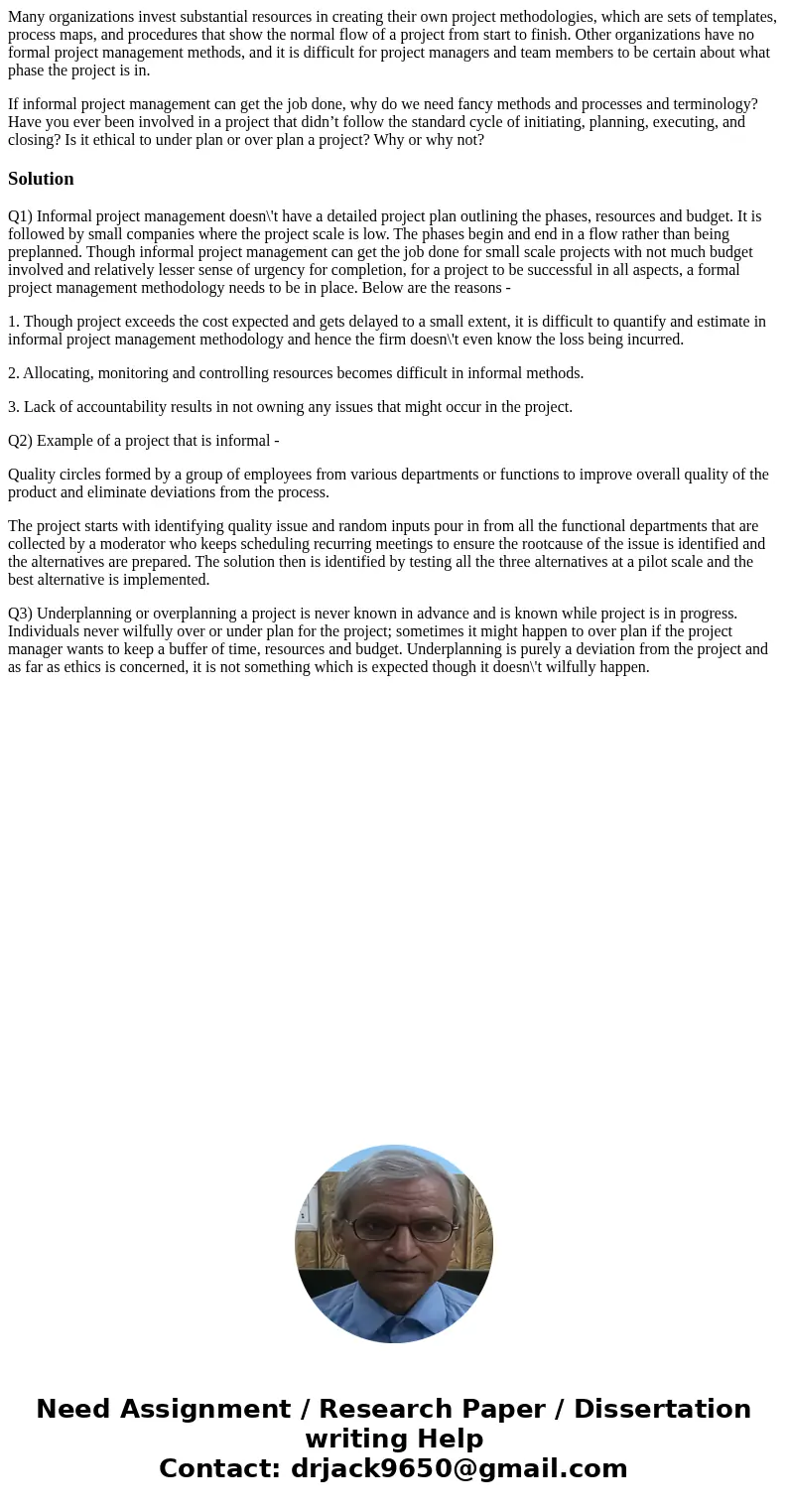Many organizations invest substantial resources in creating
Many organizations invest substantial resources in creating their own project methodologies, which are sets of templates, process maps, and procedures that show the normal flow of a project from start to finish. Other organizations have no formal project management methods, and it is difficult for project managers and team members to be certain about what phase the project is in.
If informal project management can get the job done, why do we need fancy methods and processes and terminology? Have you ever been involved in a project that didn’t follow the standard cycle of initiating, planning, executing, and closing? Is it ethical to under plan or over plan a project? Why or why not?
Solution
Q1) Informal project management doesn\'t have a detailed project plan outlining the phases, resources and budget. It is followed by small companies where the project scale is low. The phases begin and end in a flow rather than being preplanned. Though informal project management can get the job done for small scale projects with not much budget involved and relatively lesser sense of urgency for completion, for a project to be successful in all aspects, a formal project management methodology needs to be in place. Below are the reasons -
1. Though project exceeds the cost expected and gets delayed to a small extent, it is difficult to quantify and estimate in informal project management methodology and hence the firm doesn\'t even know the loss being incurred.
2. Allocating, monitoring and controlling resources becomes difficult in informal methods.
3. Lack of accountability results in not owning any issues that might occur in the project.
Q2) Example of a project that is informal -
Quality circles formed by a group of employees from various departments or functions to improve overall quality of the product and eliminate deviations from the process.
The project starts with identifying quality issue and random inputs pour in from all the functional departments that are collected by a moderator who keeps scheduling recurring meetings to ensure the rootcause of the issue is identified and the alternatives are prepared. The solution then is identified by testing all the three alternatives at a pilot scale and the best alternative is implemented.
Q3) Underplanning or overplanning a project is never known in advance and is known while project is in progress. Individuals never wilfully over or under plan for the project; sometimes it might happen to over plan if the project manager wants to keep a buffer of time, resources and budget. Underplanning is purely a deviation from the project and as far as ethics is concerned, it is not something which is expected though it doesn\'t wilfully happen.

 Homework Sourse
Homework Sourse